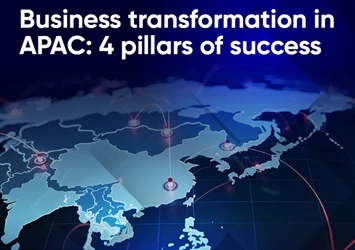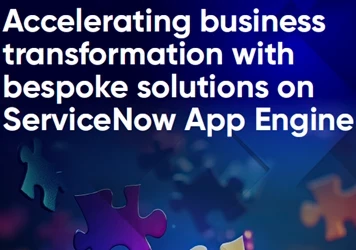PEX community contributor of the year, Brenton Harder, discusses leading process change
From the importance of data, to process improvement through robotic automation. Brenton Harder, Head of Enterprise Automation at Fiserv, offers key insights into getting process excellence right
Add bookmarkBrenton Harder is the Head of Enterprise Automation at Fiserv. He has a truly global experience of Process Excellence, having worked across different industries on different continents, including three years as the head of process excellence at BNY Mellon.
In The PEX Report 2020: Global State of Process Excellence, Harder shares his insights on all things OPEX.
PEX Network: Having worked in process excellence around the world, how does the US compare with other countries for adopting technology?
Read: “Good ideas have no rank”: lessons from the military for excellence leaders
Brenton Harder: The US is a big place, and the rollout of innovation is not uniform. Some places in New York do everything on paper, while there small towns in South Carolina that are completely digital and wired for 5G. Australia [Harder was General Manager, Group Operations at Commonwealth Bank in Sydney, Australia for three years] was one of these places where it felt like the banks were just constantly competing.
[inlinead]
But it’s easier to do change with Australia's 23 million people in a homogenous way, as opposed to 8.5 million on Manhattan island alone. Adoption is going to reflect the differences of the people, and the more variety you have, the longer it takes for the mass to move. Think about regions of Africa that just bypassed the copper wire or telephonics and went straight to mobile. Here, banking went straight to mobile, because it didn’t have the infrastructure.
PEX Network: Many OPEX professionals are having to get up to speed with AI and cognitive automation. What’s been your experience?
Brenton Harder: We started in the robotics space, which was one step back for every two or three forward. We learned a lot, and robotics three or four years ago was sold as a panacea. It was the future to everything. What we find, especially in the services industry, is it’s not about the bot in a particular process implemented in a surgical way. It’s about the data: if it doesn’t run in a linear fashion, if it’s not structured, or if it’s not clean, then the robot is just a software program, and it falls over. What started as a robotic process automation journey became a data journey.
Read: The augmented human reality defining the future of process
And my epiphany after the last three years, being a process guy, is that it’s not about the process anymore, it’s about the data and the way the data flows through the process. The process is still important, but it’s the data that really matters.
Click here to read the entire interview
In the full interview, Harder discusses a wide array of topics including the state of process mining and how business can benefit, and how to ensure buy-in for process excellence projects.
































